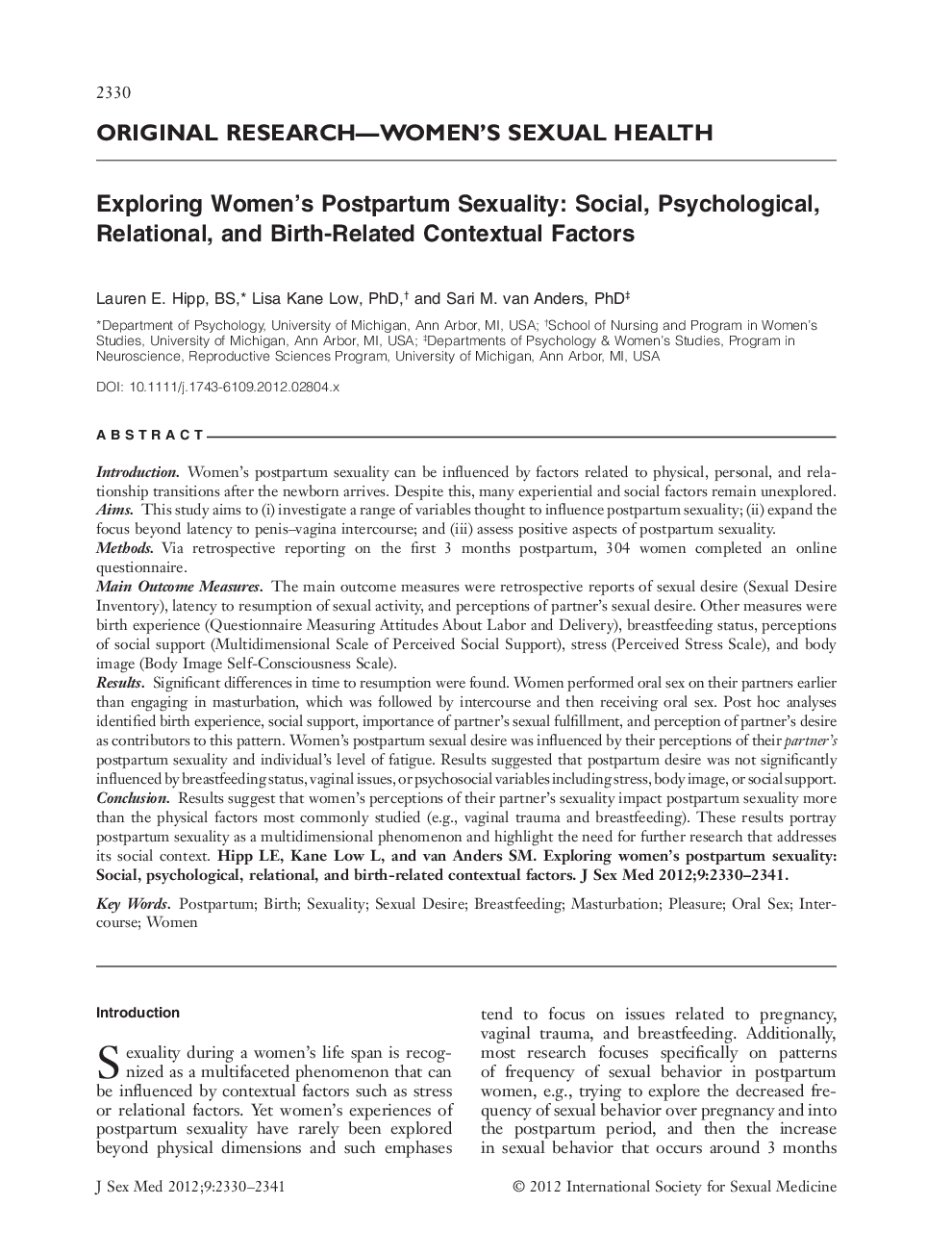| Article ID | Journal | Published Year | Pages | File Type |
|---|---|---|---|---|
| 4270739 | The Journal of Sexual Medicine | 2012 | 12 Pages |
ABSTRACTIntroductionWomen's postpartum sexuality can be influenced by factors related to physical, personal, and relationship transitions after the newborn arrives. Despite this, many experiential and social factors remain unexplored.AimsThis study aims to (i) investigate a range of variables thought to influence postpartum sexuality; (ii) expand the focus beyond latency to penis–vagina intercourse; and (iii) assess positive aspects of postpartum sexuality.MethodsVia retrospective reporting on the first 3 months postpartum, 304 women completed an online questionnaire.Main Outcome MeasuresThe main outcome measures were retrospective reports of sexual desire (Sexual Desire Inventory), latency to resumption of sexual activity, and perceptions of partner's sexual desire. Other measures were birth experience (Questionnaire Measuring Attitudes About Labor and Delivery), breastfeeding status, perceptions of social support (Multidimensional Scale of Perceived Social Support), stress (Perceived Stress Scale), and body image (Body Image Self‐Consciousness Scale).ResultsSignificant differences in time to resumption were found. Women performed oral sex on their partners earlier than engaging in masturbation, which was followed by intercourse and then receiving oral sex. Post hoc analyses identified birth experience, social support, importance of partner's sexual fulfillment, and perception of partner's desire as contributors to this pattern. Women's postpartum sexual desire was influenced by their perceptions of their partner's postpartum sexuality and individual's level of fatigue. Results suggested that postpartum desire was not significantly influenced by breastfeeding status, vaginal issues, or psychosocial variables including stress, body image, or social support.ConclusionResults suggest that women's perceptions of their partner's sexuality impact postpartum sexuality more than the physical factors most commonly studied (e.g., vaginal trauma and breastfeeding). These results portray postpartum sexuality as a multidimensional phenomenon and highlight the need for further research that addresses its social context. Hipp LE, Kane Low L, and van Anders SM. Exploring women's postpartum sexuality: Social, psychological, relational, and birth‐related contextual factors. J Sex Med 2012;9:2330–2341.
